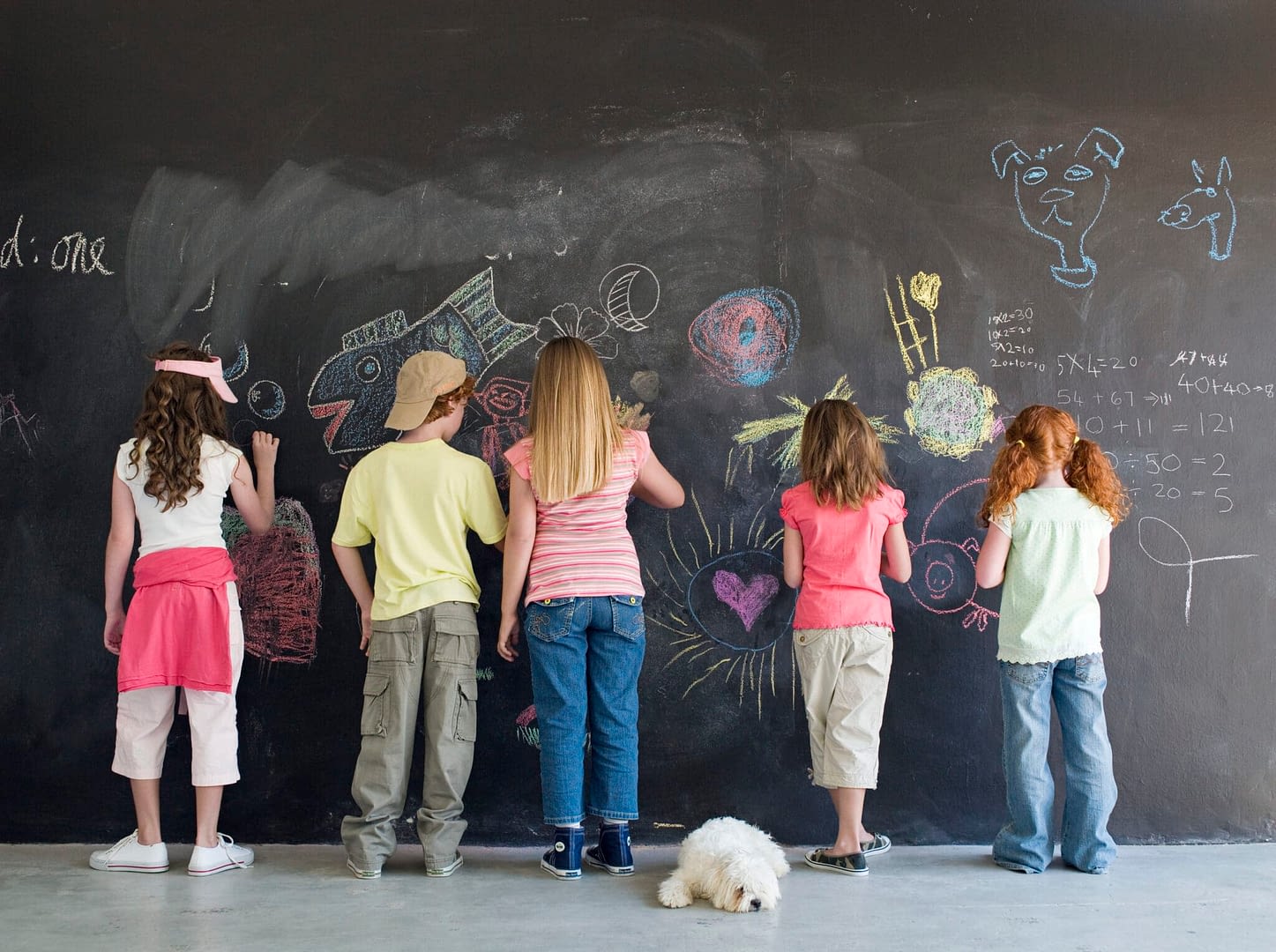We need to talk about identity. What if the truest definition of identity meant that the more I am like Jesus, the more I am the me I was made to be?
As Christ-followers, we were made to reflect the image of God back to those around us through the love of Jesus, by the leading of His Spirit. That is who we are. That is our identity.
In the world we live in, identity means many things. However, often we assume that we all define identity in the same way. But as we dig into what we mean, and what we think we mean, we begin to peel back the layers on a rich, multifaceted, confusing, and even challenging conversation.
So, how do we help kids truly know who they are, rooted in identity and confident children of God?
Identity Is Complicated
There are three tensions we can name off the top as to why this is such a difficult conversation—especially if we have each individually predetermined what identity is or isn’t.
When I trust the wonder of a God who holds all things together, I can trust that I am a wonder too.
- The first tension is that the word identity can define “what makes us unique” and “what allows us to feel like we belong.” This is, essentially, a tension between difference and sameness. And, ultimately, the word means both.
- The second tension is between “what remains true or the same about me throughout my life” and “what changes.”
As humans, we change throughout our lives—children become adults, bodies change, some get married, and some become parents. But I was not a mother at eight years old, yet, today, motherhood is part of my identity. Some things about us are true throughout our lifetime. Some things aren’t. Identity shifts.
- And the third tension is the pull between “what I know for sure” and “what I don’t yet know.” How we are seen vs. how we see ourselves stand in conflict with one another at different developmental intersections of our lives.
It is critical in this tension to embrace wonder, explore unanswered questions, and sit with the discomfort of not knowing. In this space, we get to invite God to reveal His wonder, answer questions that He has knit into His plan, and comfort us in our uncertainty.
And while the word identity is centuries old and can be traced back to ancient Latin, its modern usage only began to rise in literature in the early 2000s. The word itself has evolved in both meaning and use, and that has left some of us unsure of how we are using (or misusing) it.
I want to encourage us to, rather than resolve these tensions, sit in them, and reconcile our own understanding of identity as children of God.
When I trust the wonder of a God who holds all things together, I can trust that I am a wonder too.

A Place of Wonder
Wonder allows us to sit in a place of not knowing, of curiosity. It allows us to trust God in the spaces we can’t yet see or even define. Wonder is the heart of childlike faith we are never meant to outgrow. This posture often requires some unlearning for us as adults.
Returning to childlikeness may be the first step for some of us—to remember what it was like to not know things and go hunting for information, answers, and big ideas. There was a time when our imagination fueled our pursuits and who we were was “whatever we want to be!”
Scripture uses the word identity in one way: to define our inclusion in God’s family. There is no use for it outside of belonging. That doesn’t mean that the word hasn’t grown to mean a number of things. It just gives us the Scriptural context for its use.
The more I am like Jesus (Christlike belonging), the more I am the me I was made to be (individual uniqueness).
Scripture also talks about our unique image-bearing nature, how the hairs on our heads are counted, and our individual days are numbered. This is highly specific and individualized—meaning God knows us and includes each of us personally.
It matters that we reconcile this particular tension: that while our biblical understanding of identity is belonging, God’s understanding of each one of us is personal and intimate.
What if the truest definition of identity meant that the more I am like Jesus (Christlike belonging), the more I am the me I was made to be (individual uniqueness)?
The elephant in the room that we may need to name before going any further is that identity and salvation are two different conversations. And while they may be related, one doesn’t necessarily lead to the other.
But how we talk about identity may either welcome or deny us the privilege of talking through salvation with the kids and families we love and serve. So, before deciding that identity is a conversation to tackle, I would invite you to decide that these are people we first need to love.
A Solid Foundation
While we cannot speak to all the changes a child will experience throughout their lifetime, we can help them know with certainty what is true about them. They can know who they have always been made to be because God made it so.
God knows you.
Jesus loves you.
The Holy Spirit leads you.
You are a child of God.
You are a wonder. And your life can tell of God’s wonder too.
I get to BE part of God’s story, and my story TELLS of God’s wonder.
Identity Formed
God knows you.
Psalm 139:13-14 reminds us that we were put together by the Creator, and we were made fearfully and wonderfully. A child can know:
God sees me. He knows me. He has always known me. He has had me in mind from the very beginning. He breathed life into me with a plan and purpose designed to fulfill His will on the planet. Being KNOWN by the Creator means that I BELONG. I get to be part of His family.
Jesus loves you.
John 13:34-35 tells us that we will be known by how we love one another—to love each other the way He loves us. Children can understand:
God loves me no matter what. His love for me has no beginning and no end, but God gives me the choice to love Him back. And He waits for me to choose Jesus. Choosing Jesus, means choosing God’s love, God’s way. Jesus is the way to God’s love. I am LOVED by Jesus, and I get to share His LOVE too.
The Holy Spirit leads you.
Romans 8:14-15 says that “those who are led by the Spirit of God are children of God … the Holy Spirit you received made you God’s adopted child.” We are not alone. We can help children see:
When I choose Jesus, I can trust that the Holy Spirit will lead me each day—one step at a time. When I let the Holy Spirit lead, I grow in belief and understanding of who I am: a child of God. As I learn that God’s way is better than my way, my faith grows too. And the Holy Spirit will lead and guide me so that I grow to be more like Jesus—the me I was made to be. The Holy Spirit LEADS the way. I can FOLLOW Him.
You are a wonder.
In 1 Peter 2:9, we read that God chooses us to be His people, and that He made us to give Him praise. Identity begins with a curiosity about who we are individually. With this knowledge, kids are assured:
I am a wonder. I get to be wonderful and wonder-filled. That isn’t a goal—it’s just true. The Bible tells me that I am fearfully and wonderfully made, knit together by a loving God who knows all about me and loves every inch of me. He delights in me, and I will celebrate His wonders! I get to BE part of God’s story, and my story TELLS of God’s wonder.
What if your whole created purpose was to bring glory to God in all that you do? What if that’s the chapter of the story that is uniquely yours to tell as you find your sense of belonging as God’s own child?

Wonder Ink’s 3-year, 52-week children’s ministry curriculum offers kids space to fully find their place in God’s Big Story. Children discover they are Known by God, Loved by Jesus, and Led by the Holy Spirit.
A Kaleidoscope
Let’s return to the definition of the origin of the word identity: it was synonymous with the word identical. And in our English translations of Scripture, that holds true: our identity as children of God extends from our Christlikeness, our image-bearing nature, a family resemblance so to speak.
So, what if we aren’t at war with the world’s definition of identity? What if we just haven’t been clear about ours?
We were made to reflect the image of God back to those around us through the love of Jesus, by the leading of His Spirit. That is who we are. That is our identity. And the more we look like Jesus in the process, the more we grow to be who we were always made to be.
The identity of each one of us is a kaleidoscope of so many variables and defining features—some being DNA, hopes and dreams, culture, and more. The problem for some of us is that we immediately assume the conversation will only be about gender and sexuality.
But identity isn’t any one thing; rather a myriad of shiny objects meant to catch the Light and reflect beauty to those with eyes to see.
1 Peter 2 goes on to say “God brought you out of darkness into his wonderful light. Once you were not a people. But now you are the people of God. Once you had not received mercy. But now you have received mercy.”
When we invite kids to point their kaleidoscopes at the Light of the World, the tiny pieces of who they are come alive, colors begin to dance, and wonder is captured by a couple of mirrors that reflect His image back at us.
Made to Reflect God’s Image
We were made to reflect the image of God back to those around us through the love of Jesus, by the leading of His Spirit. That is who we are. That is our identity. And the more we look like Jesus in the process, the more we grow to be who we were always made to be.
There are big conversations to have about aspects of our identity and how we show up in the world as disciples. Let’s make sure that our kids are ready for those moments by giving them a solid foundation of truth about who, and Whose, they are first.
They will want to understand how the kaleidoscope works. But let’s start by getting lost in the wonder and beauty of it—by standing in the Light.





